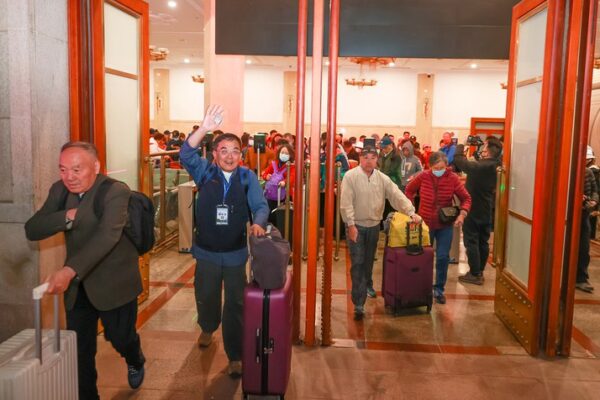Myanmar junta hosts China’s envoy for border issue talks
A Chinese official met with junta leader Senior Gen. Min Aung Hlaing to discuss cooperation between Myanmar and China, according to the Global New Light of Myanmar, a junta-backed newspaper. Senior Gen. Min Aung Hlaing hosted China Ministry of Foreign Affairs special envoy Deng Xijun in Naypyidaw on Monday to discuss the issues complicating China and Myanmar’s border relationship. Deng Xijun came to Naypyidaw because border gates have still not reopened due to increased fighting, political and military analysts told Radio Free Asia. Since China brokered a ceasefire between allied rebel groups called the Three Brotherhood Alliance on Jan. 11, other anti-junta groups have increased their efforts to seize junta-controlled territory. The Kachin Independence Army, which is not part of the alliance, captured nearly 60 junta camps in March and gained control of a partial border trading route and another major highway in Myanmar’s northern Kachin state. A former military officer who did not want to be named for security reasons said re-opening these gates in northern Shan state is vitally important to both the junta and China, as is preventing the Kachin Independence Army from getting closer with the U.S. “Of course, they want to re-open the border gates. Yunnan’s exports are mainly to Myanmar, but it is very difficult to reach an agreement,” he said. “Another point is that both governments have to prevent [the Kachin Independence Army] from being close to the U.S. So they often meet and discuss this.” On Thursday, American foreign policy director Derek Chollet announced on social media that he met several armed group leaders, including representatives from the Kachin Independence Army. Border Stability Fighting between the Kachin Independence Army and junta has raged since Wednesday, when the rebel group began attacking junta camps and highways near Lwegel, a Kachin town directly on the Chinese border. Three hundred junta soldiers, administrative staff and families of both trapped by fighting attempted to seek refuge in China on Friday, but were refused by Chinese border officials, said Lwegel residents. RFA contacted Yangon’s Chinese Embassy to verify this case, but the office did not respond by the time of publication. Further to the south in Shan state, casinos notorious for trafficking Chinese citizens into forced labor have sprung up in border areas like Muse. Eliminating these scam centers is one of the few common interests of the junta and rebel groups, which have deported a combined total of over 50,000 Chinese nationals between October 2023 and March 2024 for illegal activity. However, political commentator Than Soe Naing told RFA it would be difficult for Deng Xijun and junta forces in Naypyidaw to attempt to end the conflict in Kachin state. “China’s pressure will have some effect on the [Kachin Independence Army] because their base is on the border. But they are not following everything China says,” Than Soe Naing said. “So I think that it will not be very easy if they agree to the peace process like the rest of the armed groups.” The Chinese military will conduct a two-day live-fire exercise on Tuesday and Wednesday near its border with Myanmar, Dehong Dai and Jingpo prefectures in Yunnan announced on Monday. Translated by RFA Burmese. Edited by Kiana Duncan and Mike Firn.







